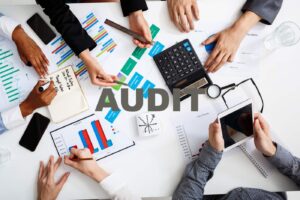Advanced Electronic Document and Records Management
Course Fee:
Objectives:
• Develop an advanced understanding of Electronic Document and Records Management (EDRMS) strategies
• Gain insights into the key issues and challenges in records and information management
• Learn techniques for designing, implementing, and running successful EDRMS solutions
• Enhance skills in managing documents and records effectively
Course Content:
• Records Management Fundamentals
• Basic definitions
• Introduction to records
• Content context and structure of record
• Introduction to record management
• Records Lifecycle
• Creation
• Distribution and Use
• Disposition
• Archiving
• Introduction to Electronic Records Management (ERM)
• Types of Electronic records
• Elements of a good record management system
• Implementation issues of ERM
• Best practices in Electronic Record Management
• Electronic Record keeping
• Objectives of electronic recordkeeping
• Integration of ERK system with other IT systems
• Critical success factors for implementation of ERK system
• Elements of Effective Records Management System
• Records Inventory & Classification
• Retention scheduling
• Records Storage & Conversion
• Vital Records Program
• Disaster Prevention & Recovery Planning
• Disposition
• Classification and Indexing of Records
• Designing a records classification System
• Types of classification schemes
• Attributes of a good filing system
• Metadata in ERM
• Importance of metadata
• Uses and sources
• Methods for collecting and applying metadata
• Evaluating organization’s need for ERM system
• ERM needs assessment
• Data collection from different users
• Data analysis and use in ERM planning
• Planning for Electronic Record Management System
• Records Management integration to organization information management strategy
• Planning for cultural change associated with ERM
• Determining end users roles in ERM system
• Planning for resources in ERM implementation
• Implementing ERM System
• Components of an ERM system
• Solution options for information and records management
• Designing an ERM system
• Steps to implement an effective ERM Program
• Developing information governance strategy
• Integrating people, processes, and technologies
• ERM system implementation standards
• Model Requirements for the Management of Electronic Records (MoReq)
• AIIM Standards Committee on Integrating Records Management and Document Management Requirements
• Reports by Doculabs on ERM, EDM, and ECM systems
• International Standard ISO 15489-1
• Disaster Risk Management in ERM
• Types of disasters, hazards, and risks in ERM
• Disaster Risk Planning
• Development of policy, procedures for disaster risk management
• Records protection method
• Monitoring and Auditing of Electronic Records Management System
• Conducting regular reviews of records management policy, plan, system, and guidelines
• Monitoring compliance to records management guidelines
• Change management in organization records management policy
• Electronic Records Management Policy
• Objectives of records management policy
• Record management responsibilities
• Key provisions of record management policy
Who Can Attend:
• Records Managers
• Information & Knowledge Managers
• Document Controllers & Archive Managers
• Information Security & Operations Managers
• Compliance Officers/Managers
Methodology
The training methodology integrates lectures, interactive discussions, collaborative group exercises, and illustrative examples. Participants will acquire a blend of theoretical insights and hands-on practical experience, emphasizing the application of learned techniques. This approach ensures that attendees return to their professional environments equipped with both the competence and self-assurance to effectively implement the acquired skills in their responsibilities
.
DATE:
1ST BATCH: 27th – 30th Jan,2026
2ND BATCH: 19th – 22nd May,2026
3RD BATCH: 15th – 18th Sept,2026
Course Category
- Human Resource and Admin
- Finance and Accounting
- Internal Audit and Fraud Control
- Stores, Procurement and Supply Chain
- Information Technology
- Aviation and Maritime
- Banking, Investment and Insurance
- Business Communication
- Construction Management & Civil Engineering
- Engineering, Instrumentation and Maintenance
- Entrepreneurship and Business
- Hotel & Hospitality Management
- Law and Contract Management
- Management and Leadership
- Project Management
- Public Relations
- Public Sector
- Sales, Marketing & Customer Service
- Secretaries & Personal Assistants
- Transport & Logistics
- Security and Safety
More Courses
VENUE
25, Queen street, Alagomeji Bus Stop, Yaba, Lagos









